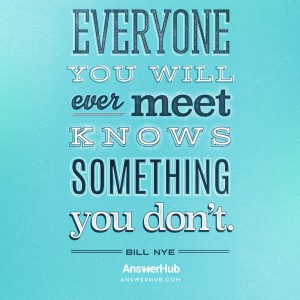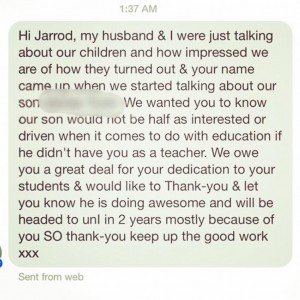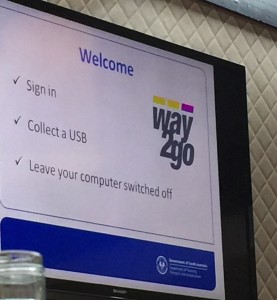Sparking Change
Change is a funny thing. Some people like it, but for many it brings about feelings of discomfort and anxiety. Being a member of the first group, I find the challenge that change brings exciting. The opportunity to participate in new learning is something that is fairly unique to our profession. In many jobs new information is distributed, but teachers get to participate in the learning. We get to take new ideas and try them out. We have the luxury (for the most part) to decide if something new improves the learning in our classrooms or not and then decide what to add to our practice and what to leave out.
The process we go through in doing this is extremely valuable. It challenges the ideas we have about how students learn and, just as importantly, it challenges our own learning. I firmly believe that a growth mindset is necessary for us to do our jobs properly. Being unwilling to consider new ideas is detrimental to our student’s learning. One of the most powerful things we can do is model learning to our kids. It shows them that we are the ‘life long learners’ that we want them to be.
Having said this, the realities of our day to day work are often harsh. The overwhelming feeling of having ‘too many balls in the air’ can plunge us into our default modes very quickly. It’s not ideal, but it’s a real thing. When we are stressed and busy we fall back to what we know works and it can feel like there isn’t time to try new things.
So how do we break through this feeling? I don’t know that there’s an easy answer. For me, it was being exposed to some high level professional development at an EdTechSA (formerly CEGSA) conference. I was already engaging with new learning regularly, but for whatever reason, the connections I made both to what was being said by the keynotes and in my discussions with other attendees left me with a need to commit myself deeper to new learning. George Couros, Summer Howarth and Louka Parry were some of these people.
I have been lucky enough to follow this up with regular, inspiring, professional development opportunities both locally and at two EduTech conferences in Brisbane. My connections (mostly through Twitter) with generous educators like Alec Couros and Stephen Heppell alongside a huge number of connected local and global school based teachers has helped me to continue my new learning every day.
In a few weeks, I look forward to taking 25 staff from my school to this year’s EduTech conference. This is a huge investment for our school but one that is well worth the cost. Over the last year I have asked our teachers to consider a lot of change and they have all shown a willingness to invest their time and effort in what I have had to say. To me, this says that our students are in good hands. I work with a group of teachers that have stepped a long way out of their comfort zone. For me, being able to take them to EduTech, I hope will provide an opportunity for our staff to make some new connections of their own.




Recent Comments